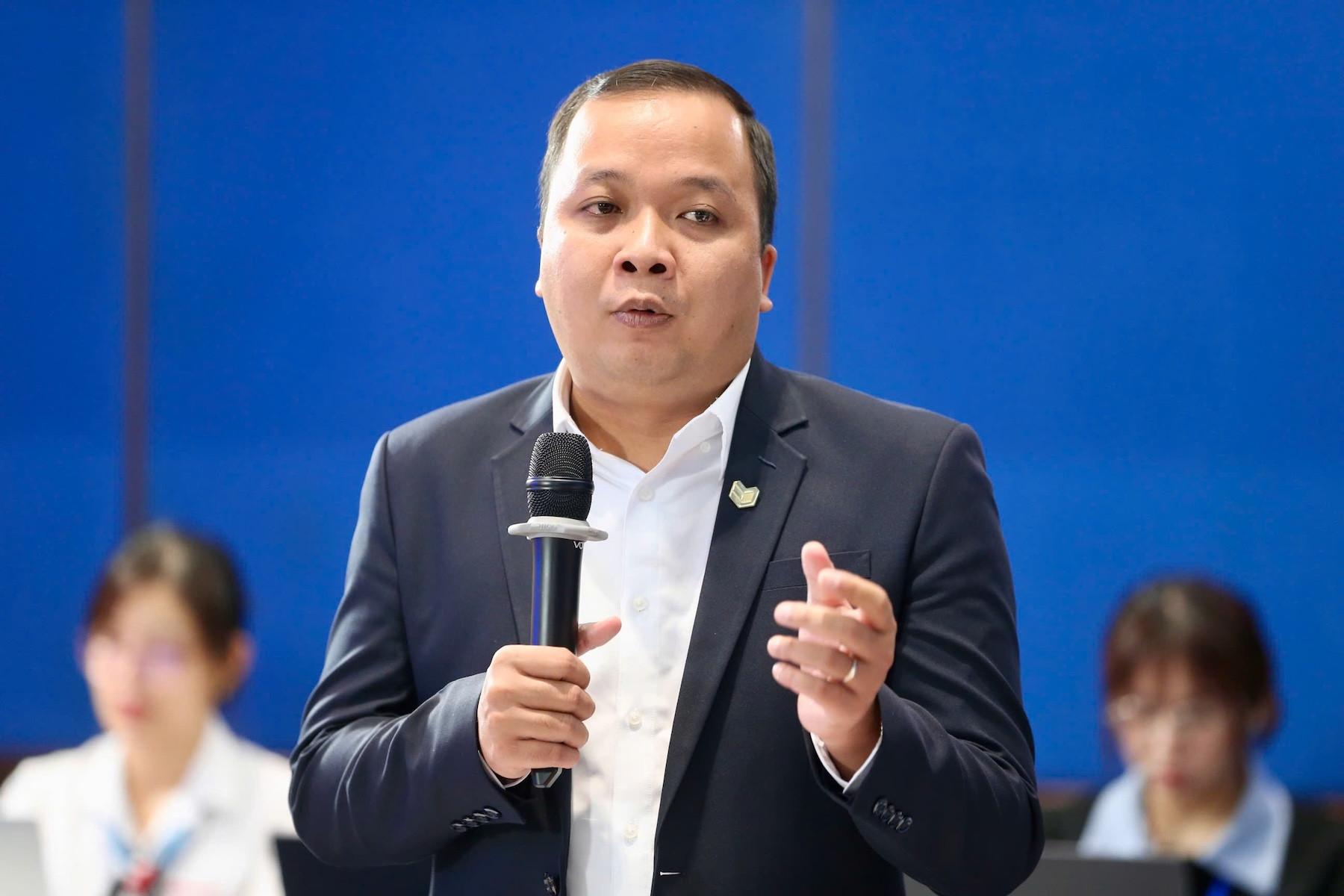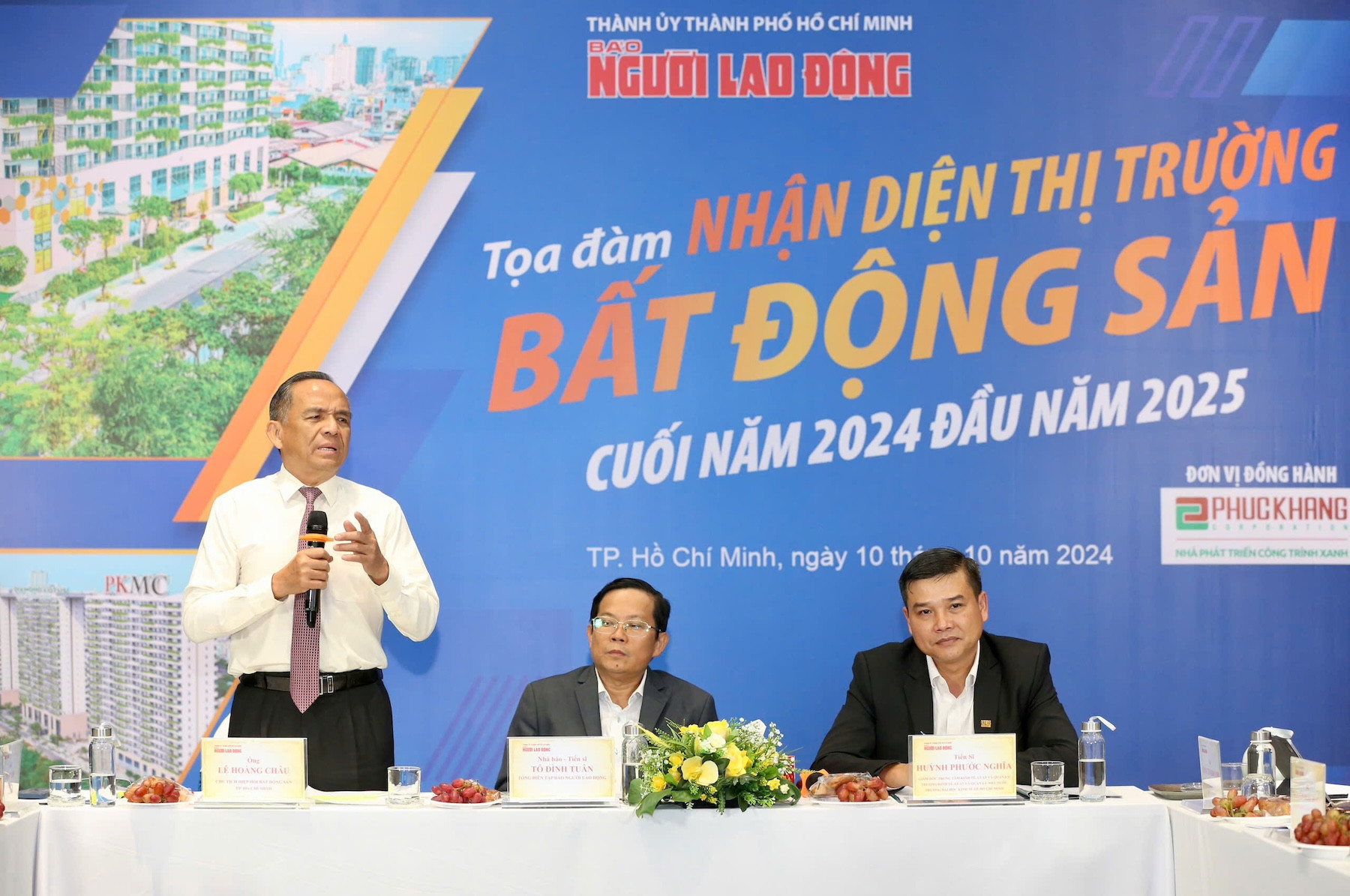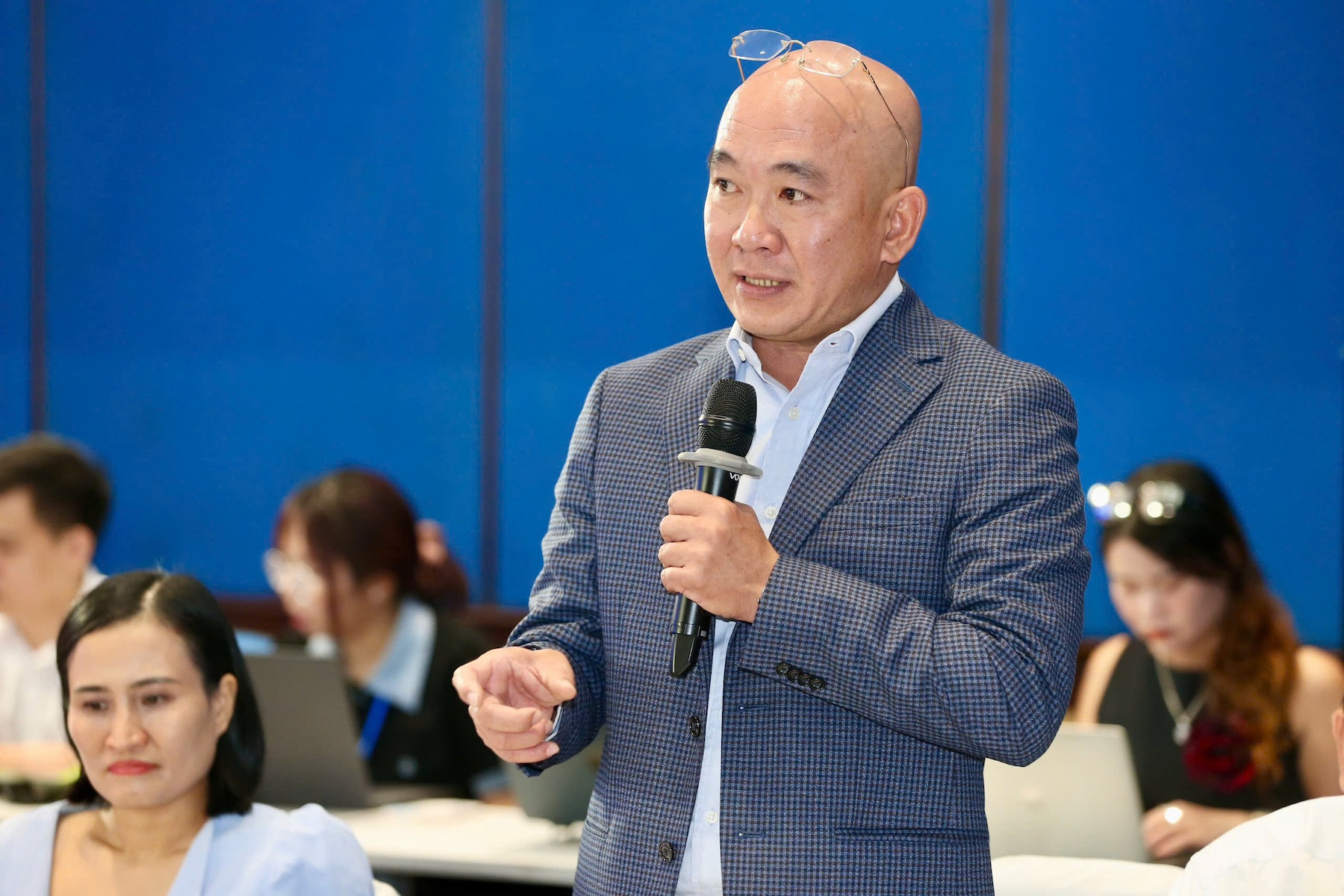As signs of recovery emerge in the Vietnamese real estate market, experts and leading industry figures note that while there is improvement, difficulties still loom large, impacting the pace of development.
From increased liquidity in the affordable housing segment to ongoing legal and tax issues, the market is on a rugged path to regain stability.
Recovery but not a breakthrough

At the seminar "Identifying the Real Estate Market at the End of 2024 and Early 2025," organized by Nguoi Lao Dong newspaper on October 10, Vo Hong Thang, Deputy General Director of DKRA Vietnam, shared insights indicating that the real estate market showed positive signs in Q3 of this year. A total of 18,000 products were launched, with significant consumption growth in the affordable housing segment.
Notably, in Ho Chi Minh City, apartments priced below 60 million VND/m² and land lots in neighboring provinces like Binh Duong, priced at about 30 million VND/m², are attracting considerable interest. The secondary apartment segment also recorded activity, with transaction prices increasing by 5-9% compared to the same period last year.
Mr. Thang highlighted that the land lot market provided over 9,000 products in Q3, marking a 17% increase compared to the same period in 2023. He also predicted that “land lots with clear legal status and residential land in populated urban areas will continue to be scarce, with a consumption rate increase of over 30%.”
However, these positive figures do not overshadow the existing challenges. The Deputy General Director admitted that the resort real estate market continues to face obstacles due to previously broken profit commitments, coupled with impacts from COVID-19 and legal disputes. "This segment needs more time to recover and stabilize," Mr. Thang stated.

Mr. Le Hoang Chau, Chairman of the Ho Chi Minh City Real Estate Association, emphasized that the real estate market in Ho Chi Minh City has emerged from its most challenging low point but still faces many obstacles.
In the first nine months of 2024, the market recorded a growth rate of about 6-7%, indicating a clear recovery. However, the supply of housing remains very limited, with only nine new projects approved in the first eight months of the year, most of which are small-scale. Mr. Chau added, "The scale of these projects is quite small, with the largest only reaching 5 hectares."
A pressing issue is the significant increase in housing prices, making it difficult for many people to access housing. According to Mr. Chau, “Housing prices have increased by 15-20% due to supply and demand dynamics while supply remains scarce.” He also suggested that better support mechanisms for workers should be established through surveys and adjustments to rental regulations in the Housing Law.
Foreign investors struggle to access real estate in major cities

During the seminar, Dr. Su Ngoc Khuong, Senior Director at Savills Vietnam, candidly shared his perspective on foreign investors, emphasizing that they face many challenges accessing the real estate market in major cities like Ho Chi Minh City and Hanoi.
He noted, “The market for foreign investors is substantial but difficult to access, except for projects that completed their legal procedures 5-7 years ago.”
While international investors remain very interested in the industrial real estate sector, Mr. Khuong remarked that “currently, there are not many opportunities for them in the housing segment. Legal barriers and difficulties in accessing land funds have slowed the pace of investment, forcing them to pivot to other fields such as infrastructure and industrial park development.”
Despite this, many leading experts maintain a positive outlook on the long-term future, pointing to numerous driving forces that will boost the real estate market. Mr. Pham Lam, Vice Chairman of the Vietnam Real Estate Brokerage Association, believes that transparent policies, infrastructure development, new capital sources, stable credit, and high liquidity will be key factors in promoting the market.
“The government is very determined to implement infrastructure projects, especially in the northern and southern regions. Infrastructure will be a crucial factor in tightly connecting areas and driving the real estate market,” emphasized Mr. Pham Lam.
Currently, while the real estate market shows signs of recovery, sustainable development requires stability in the macroeconomic environment, restored consumer confidence, and resolution of legal issues. The authorities in Ho Chi Minh City and nationwide are striving to alleviate difficulties in this sector, which will also support the growth of many related industries.
Vo Tam